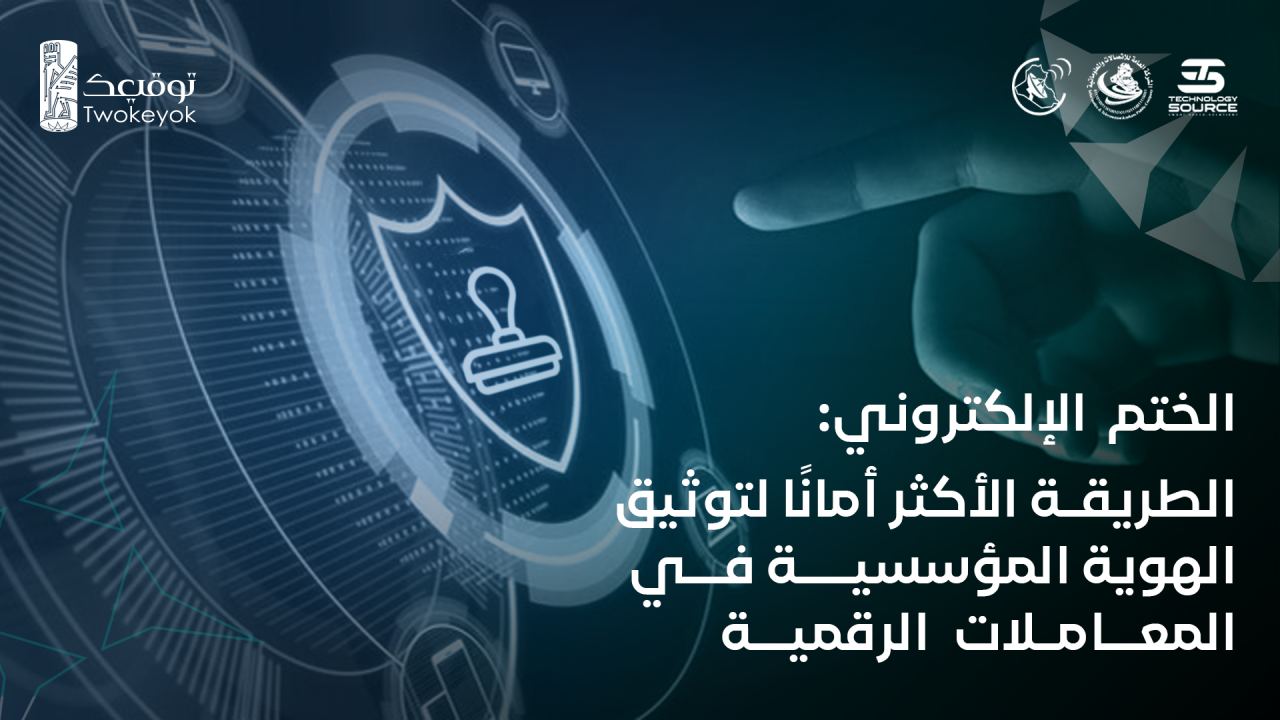
As the world embraces digital transformation, businesses and government institutions increasingly rely on electronic systems for transactions. Whether in commercial operations or governmental processes, the need for reliable digital authentication tools has become essential. One of the most effective solutions for securing institutional identity and ensuring document authenticity is the electronic seal.
An electronic seal is a digital authentication tool used to verify the identity of an organization in digital environments. It serves as the electronic equivalent of a traditional company stamp, ensuring the authenticity and integrity of official documents.
Unlike electronic signatures, which are tied to individuals, an electronic seal is associated with organizations (e.g., corporations, government agencies, or institutions). Its primary purpose is to certify the validity of documents and confirm that they were issued by a legally recognized entity.
The electronic seal is created using advanced cryptographic technologies, including public key infrastructure (PKI). This ensures that documents remain tamper-proof after sealing, allowing them to be used in official transactions, including business contracts, government agreements, and regulatory filings.
The electronic seal is one of the most secure methods for verifying institutional identity. When applied to a document, it confirms that the document:
✅ Was issued by an authorized entity.
✅ Has not been altered after sealing.
✅ Is legally recognized and verifiable.
Using strong encryption algorithms like PKI, the electronic seal makes it nearly impossible to forge or tamper with documents. The sealed document is directly linked to the institution, ensuring its authenticity.
The electronic seal provides an additional layer of security by encrypting institutional data and documents. Once sealed, documents cannot be modified or accessed by unauthorized parties, making them ideal for:
By preventing fraud, unauthorized changes, and identity theft, electronic seals are essential in securing high-value transactions.
Many countries, including Iraq, have recognized the legal validity of electronic seals as a legitimate alternative to traditional stamps. The Iraqi Electronic Transactions Law has been updated to include electronic seals, ensuring their acceptance in official procedures.
Additionally, electronic seals comply with international standards such as:
✅ ISO security standards
✅ EU eIDAS regulations
✅ WebTrust certifications
This regulatory compliance strengthens the credibility of digitally sealed documents and increases their acceptance in global business environments.
The electronic seal ensures that all transactions are conducted with full transparency, helping organizations establish trust with partners, clients, and regulatory authorities.
For government agencies, electronic seals verify that all issued official documents are authentic and approved, reducing the risk of forgery and document fraud.
For businesses, electronic seals provide a guarantee that their contracts, invoices, and certifications are genuine and legally binding.
Using electronic seals speeds up document authentication compared to manual signing and stamping. Instead of requiring physical visits to offices, organizations can digitally seal documents instantly, saving time, effort, and resources.
💡 Key Benefits:
✔ Faster processing times for official approvals.
✔ Lower administrative costs by reducing paperwork.
✔ Seamless integration with digital business workflows.
The electronic seal operates using Public Key Infrastructure (PKI), ensuring strong encryption and security. The process typically involves:
1️⃣ Issuance of a Digital Certificate – The organization obtains a certified digital identity from an accredited Certificate Authority (CA).
2️⃣ Generation of Encryption Keys – A public and private key pair is created to digitally seal documents.
3️⃣ Sealing the Document – The organization applies the electronic seal using its digital signature infrastructure.
4️⃣ Verification – The recipient can validate the seal using the organization’s public key, ensuring that the document is authentic and has not been altered.
✅ Easy to Implement & Use
Organizations can quickly issue and apply electronic seals to ensure document authenticity.
✅ Seamless Integration with Digital Systems
Electronic seals can be integrated into document management systems (DMS), enterprise resource planning (ERP) software, and financial platforms.
✅ Globally Recognized and Legally Compliant
Electronic seals comply with international security regulations, ensuring global acceptance.
✅ Significant Cost Savings
By eliminating paper-based documentation and manual verification, organizations reduce printing, storage, and administrative costs.
In Iraq, TwoKeyOk is leading the way in providing secure electronic seals to support businesses and government institutions.
With collaboration between the Communications and Informatics Authority and the Ministry of Communications, TwoKeyOk enables organizations to digitally authenticate documents, ensuring compliance with national security standards and advancing Iraq’s digital economy.
💡 Why Iraq Needs Electronic Seals:
✔ Strengthening digital sovereignty.
✔ Enhancing trust in e-government services.
✔ Facilitating secure business transactions.
✔ Supporting Iraq’s integration into the global digital market.
The electronic seal is a powerful tool for verifying institutional identity, protecting documents, and ensuring security in digital transactions. By enabling secure, transparent, and legally compliant authentication, electronic seals provide unmatched reliability in business and government processes.
With TwoKeyOk, institutions in Iraq can digitally authenticate their documents with confidence, ensuring that they remain tamper-proof, legally recognized, and fully secure.
🚀 Is your organization ready for the future of secure digital transactions? Start using TwoKeyOk’s electronic seal today and protect your institutional identity!